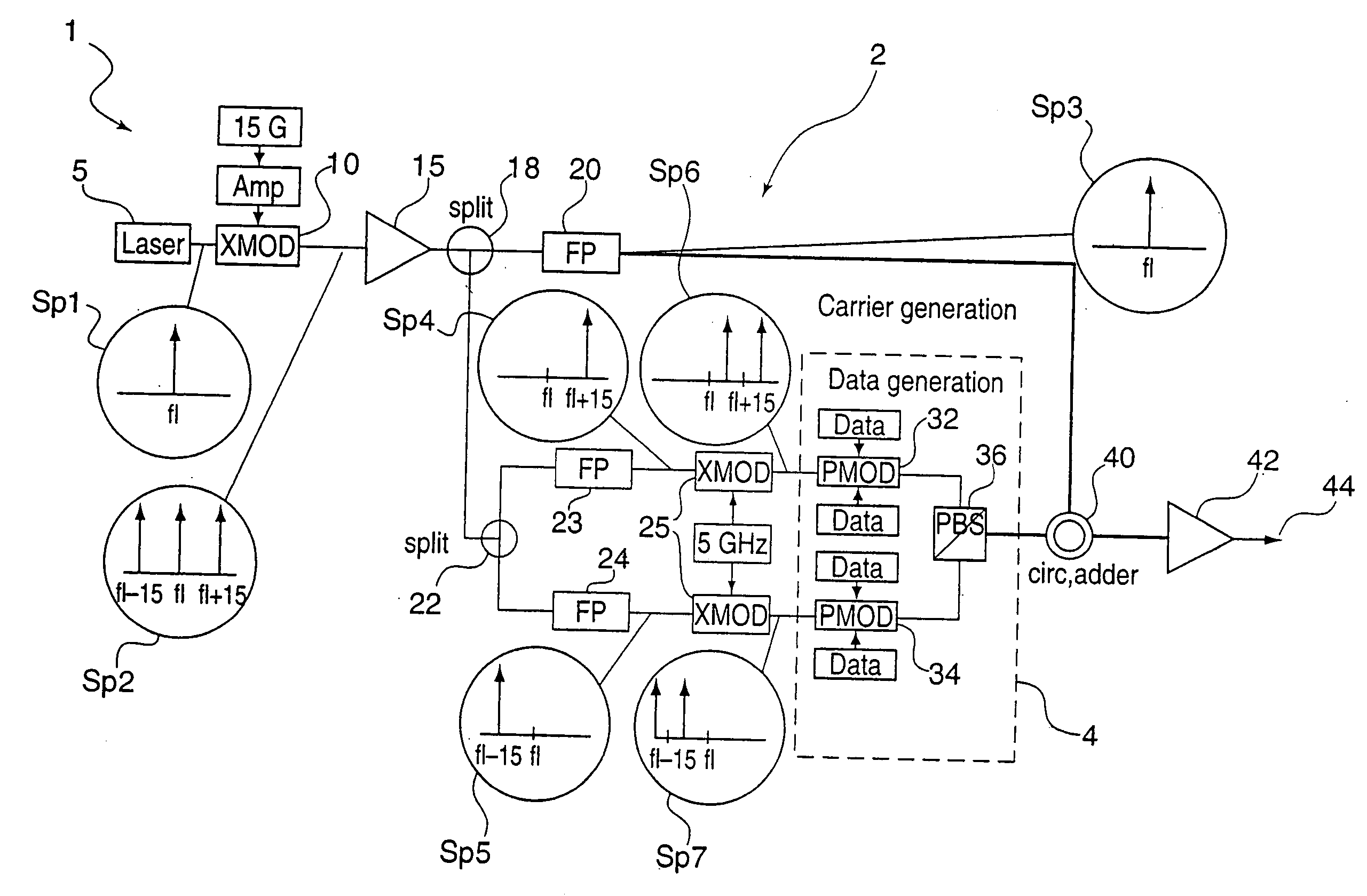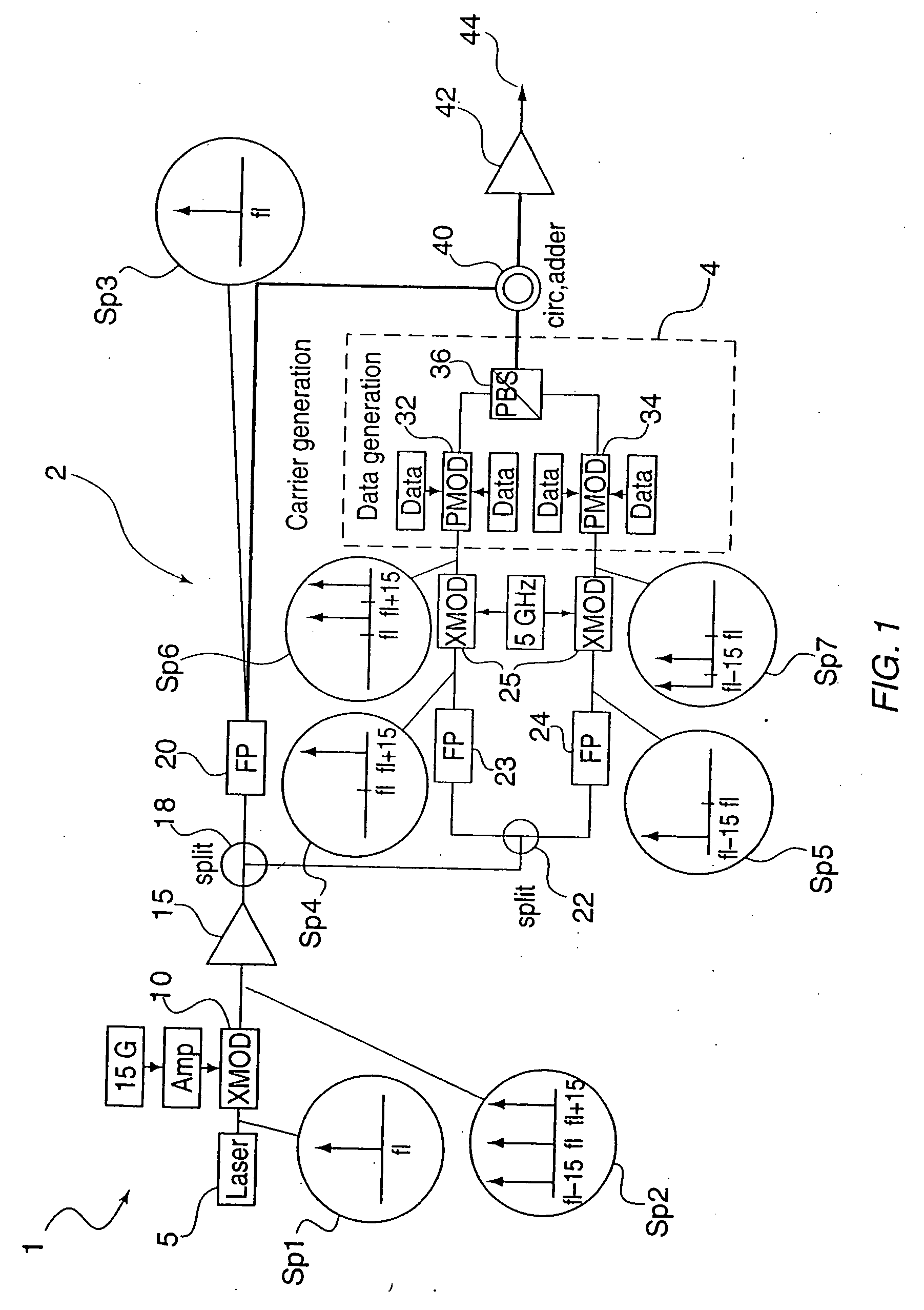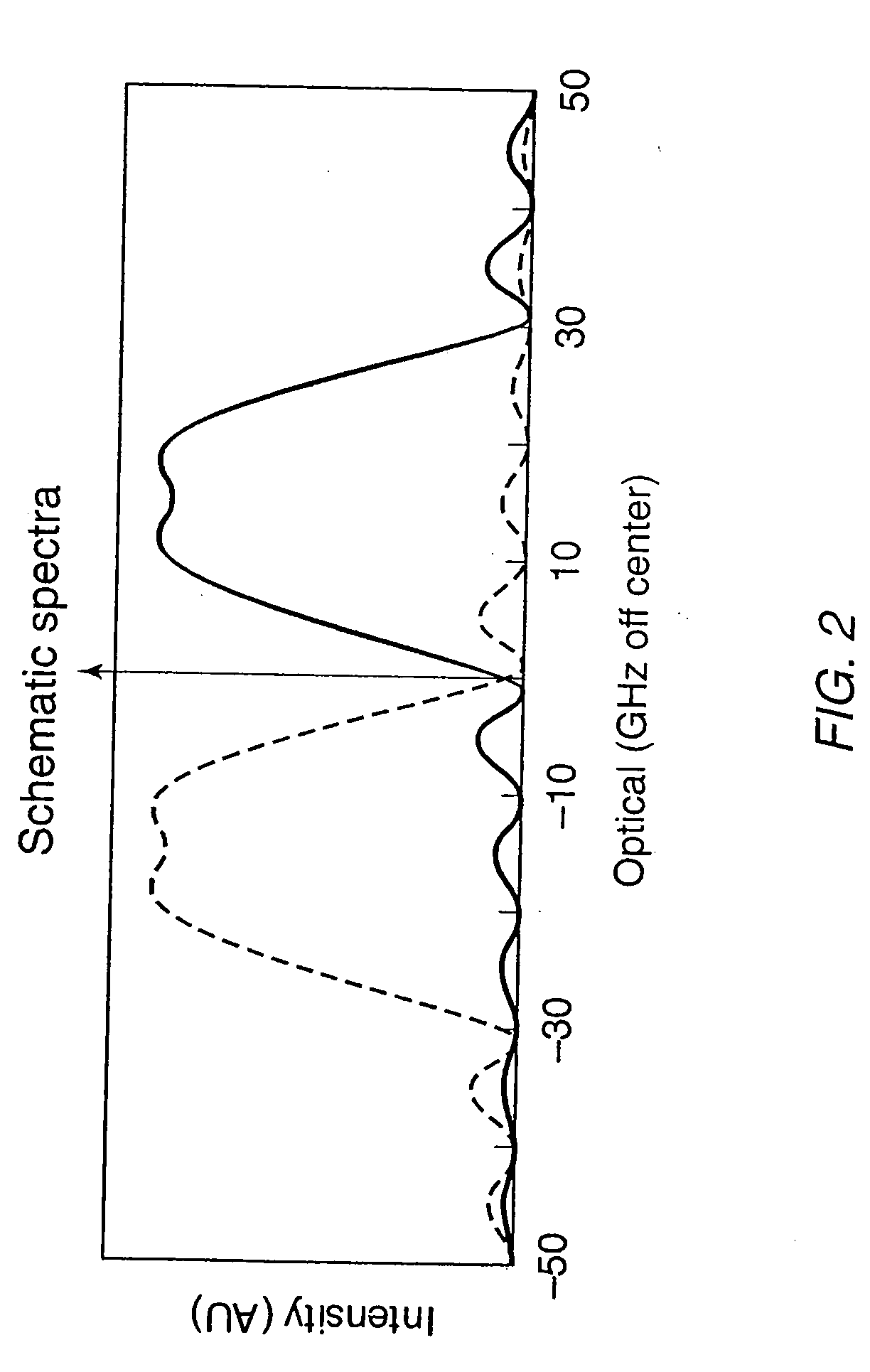Method and system for 80 and 160 gigabit-per-second QRZ transmission in 100 GHz optical bandwidth with enhanced receiver performance
a technology of optical bandwidth and receiver performance, applied in the field of optical data communication, can solve the problems of extensive design challenges of data transmission at 40 gb/s (or higher) and achieve the effect of improving high data rate optical transmission and reception
- Summary
- Abstract
- Description
- Claims
- Application Information
AI Technical Summary
Benefits of technology
Problems solved by technology
Method used
Image
Examples
Embodiment Construction
80 / 160 Gigabit per Second Transmission
[0058] In accordance with the present invention, a transmitter that generates data signals in a QRZ (pulsed) format achieves a total data transmission rate equal to eight times a base data rate, i,e, 80 Gigabits per second (Gbps) over a 100 GHz channel if the base data rate is 10 Gbps, with high non-linear performance by setting the polarization state of the data bands such that cross-talk induced by PMD and cross-phase modulation are reduced. Additionally, according to the invention, a transmitter achieves a total transmission data rate equal to 16 times the base data rate, i.e., 160 Gbps over a 100. Ghz channel, by sharpening the QRZ pulses and then interleaving two pulse-sharpened QRZ data signals in the time domain, thus further doubling the data rate. Furthermore, using counterpropagation in the transmitter, carrier signals and data signals traverse the same length of fiber and thereby experience the same total fiber-induced phase delay, ...
PUM
 Login to View More
Login to View More Abstract
Description
Claims
Application Information
 Login to View More
Login to View More - R&D
- Intellectual Property
- Life Sciences
- Materials
- Tech Scout
- Unparalleled Data Quality
- Higher Quality Content
- 60% Fewer Hallucinations
Browse by: Latest US Patents, China's latest patents, Technical Efficacy Thesaurus, Application Domain, Technology Topic, Popular Technical Reports.
© 2025 PatSnap. All rights reserved.Legal|Privacy policy|Modern Slavery Act Transparency Statement|Sitemap|About US| Contact US: help@patsnap.com



